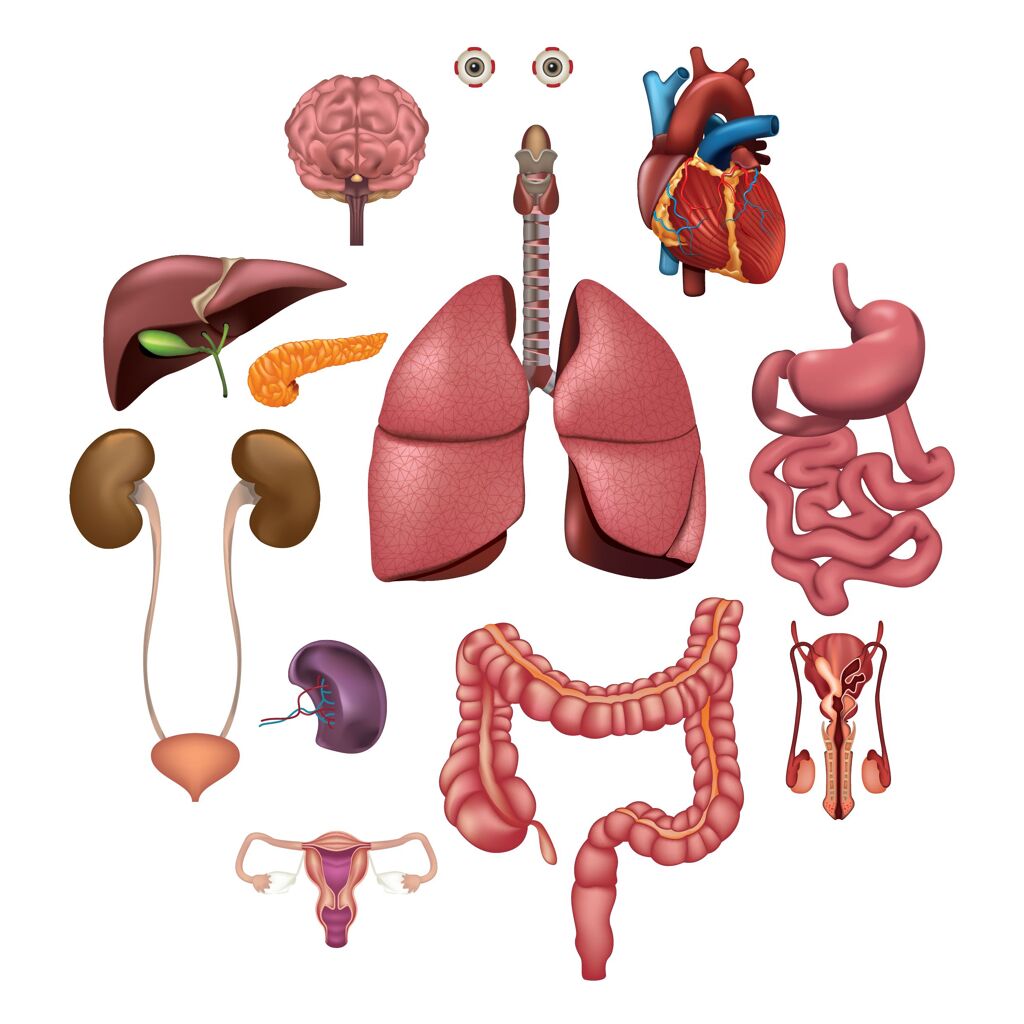Causes and Implications of Blood Brain Barrier Permeability

Do you possibly have leaky brain syndrome? The symptoms are somewhat hard to pinpoint but include things like difficulty concentrating, chronic fatigue, headaches / migraines, memory loss or other cognitive issues.
If you suffer from these types of symptoms then read on for details about leaky brain syndrome and how we can help.
In this blog on leaky brain, you will learn:
- About the brain, the blood brain barrier and what is leaky brain
- The symptoms of leaky brain and the consequences for your long-term health
- What causes leaky brain
- Testing for leaky brain
We have already written about a closely related condition called leaky gut syndrome. Please see our blog here. In an upcoming blog, we will investigate how leaky gut and leaky brain are connected, then we will address how to resolve leaky gut and leaky brain in the next blog so keep following us!
The Brain
The brain is the most complex part of the human body. It controls intelligence, behavior, thought, memory, emotion, touch, motor skills, vision, breathing, temperature, hunger and every process that regulates the body.
- The brain weighs about 3 pounds in the average adult (Mou Y, 2022). It is made up of about 60% fat. The remaining 40% is a combination of water, protein, carbohydrates and salts (Mou Y, 2022).
- The brain contains blood vessels, nerves, neurons and glial cells. The adult brain is composed of 100 billion neurons and 1 trillion glial cells (Mou Y, 2022).
- The brain accounts for 2% of body weight and uses up 20% of the body’s energy supply (Mou Y, 2022).
- The brain and spinal cord make up the central nervous system (CNS).
The Blood Brain Barrier
Because the brain is so critical for life, it is protected by a barrier called the Blood Brain Barrier (BBB). This is a single layer of cells joined together by tight junctions, very similar to the gut lining we have along the digestive tract.
The role of the BBB is to keep most substances from the bloodstream out of the brain and allow only very few substances into the brain. This is to protect the brain from potentially harmful substances in the bloodstream. Toxins like heavy metals, pesticides, PCBs, other chemicals and damaging proteins can be present in the bloodstream. They are kept out of the brain by the BBB.
The BBB lets substances needed by the brain in, such as oxygen, hormones and nutrients.
What is Leaky Brain?
The BBB is meant to be impermeable to protect the brain. It is there to prevent toxins and unwanted molecules from entering the brain, where they may cause harm. But this lining can become leaky and allow harmful things into the brain and cause health issues. Like with leaky gut, where the tight junctions of the lining can gut lining loosen, tight junctions of the BBB can also become loose. This makes the brain permeable or leaky and is no longer protective.
When the tight junctions of the brain loosen, we call this blood brain barrier dysfunction, or simply, leaky brain. It is important that a case of leaky brain is identified and resolved. This is critical to protect brain health and cognition over the long term.
The BBB and Inflammation
The BBB is important for brain health and disease (Mou Y, 2022). A compromised BBB can advance into neurodegenerative diseases.
Chronic inflammation is dangerous for the BBB. The BBB is a defense barrier against potentially inflammatory circulating cytokines. A healthy body normally produces inflammatory factors at low but present levels. Excessive production of these inflammatory factors is dangerous. Pro-inflammatory cytokines can dysregulate the tight junctions of the BBB and change its permeability (Mou Y, 2022).
Large inflammatory fluctuations in the brain due to high and frequent levels of inflammatory substances change BBB permeability. This can allow pathogenic substances into the brain.
The resulting chronic inflammation will damage the BBB and increase neuroinflammation, which is a common underlying root cause of brain degeneration (Mou Y, 2022).
Why BBB Permeability is an Issue
Leaky brain is linked to many diseases:
- Neurological diseases: MS, dementia/Alzheimer’s disease, brain trauma, edema, brain cancers, ALS and systemic diseases such as liver failure (Obrenovich, 2018).
- Neurodegenerative disorders: Parkinson’s disease (PD) and even autism.
- Mental health issues: anxiety disorders, panic disorder, obsessive-compulsive disorder, phobias, depression/ severe depression, bipolar disorder, eating disorders and schizophrenia (Obrenovich, 2018).
- BBB permeability and disruption is present in Alzheimer’s disease (AD). It may allow peripheral blood, amyloid beta and inflammatory cytokines to enter the brain and contribute to the disease process (Obrenovich, 2018).
- Barrier damage to both the gut and brain through unhealthy gut microbes has been found in schizophrenia patients (Mou Y, 2022).
- Barrier damage is a potential marker for the beginning of and development of chronic disease (Mou Y, 2022).
Microglia Cells & the BBB
Microglia cells are the immune cells of the brain and central nervous system. They are involved in brain injury, infections, neuroinflammation and brain disorders. Microglial cells make up about 10% of the cells in the brain (Augusto-Oliveira M, 2019).
Microglia scavenge for plaques, damaged neurons or infectious agents in the brain. Microglial cells respond to toxic molecules by releasing inflammatory mediators and mounting an inflammatory response. Once the issue is solved, microglial activity decreases, they release anti-inflammatory mediators and the inflammatory response is stopped.
Microglia can become stimulated and chronically activated, for example, by LPS from gut bacteria. The chronic activation of microglia releases cytotoxic molecules (proinflammatory cytokines, reactive oxygen species and other damaging substances) which can cause neuronal damage. Chronic activation of the immune system and an inflammatory response can lead to neuronal damage.
Microglial activation is the hallmark of neuroinflammation and neurodegeneration. Microglial activation makes the BBB entrance leaky, in response to the inflammation (Mou Y, 2022). Microglial over-activation is a great risk to brain health. Dysfunctional microglia lose their neuroprotective properties, gradually leading to chronic neurodegeneration (Mou Y, 2022).
Symptoms of a Leaky Brain – How do you know if you have Leaky Brain?
How would you know if you had a leaky brain? Neurological and cognitive issues are the main symptoms of leaky brain. They include things like:
- Brain fog or difficulty concentrating
- Chronic fatigue that does not improve with rest or sleep
- Headaches or migraines that come on suddenly and grow worse over the course of the day
- Memory loss or other cognitive decline – this may lead to dementia and Alzheimer’s disease
- Mood disorders; anxiety, depression and schizophrenia
- Peripheral neuropathy
- ADD/ ADHD/ Autism spectrum disorders
- Seizures
Consequences for Long Term Health
A leaky brain is an early indicator of cognitive dysfunction and increases the risk of developing neurological or mental health conditions. A breakdown in the blood brain barrier has been observed in patients with major psychiatric illnesses (Obrenovich, 2018). Neuroinflammation and neurodegeneration happen if the brain becomes leaky (Mou Y, 2022). Leaky brain, neuroinflammation and neurodegeneration are linked to neurological diseases like autism, dementia, Alzheimer’s disease, depression and schizophrenia.
To Read About Blog Topic, Scroll Down
Want To Work With Our Clinic?
Do you have a chronic or mystery illness that no one has been able to help you with? Are you simply wanting to re-connect with a healthier version of yourself? It’s Time To Finally Feel Better!
Autoantibodies & Leaky Brain
An autoantibody is an antibody that the immune system makes and is directed against the proteins of an individual’s own body. Autoantibodies can directly destroy cells that have the specific proteins on them. Or autoantibodies make it easier for other immune cells to destroy those proteins. They are part of the immune system defense. But they are also involved in autoimmune disease and autoimmune processes, causing the immune system to mistakenly attack self-tissue. Some autoimmune diseases are caused by autoantibodies.
Circulating autoantibodies can breach the BBB if it is leaky. Specific autoantibodies could cause severe mental disturbances like anxiety disorders, schizophrenia, bipolar disorders, epilepsy or depression. The symptoms of these diseases might be partially caused by autoantibodies in the brain (Zong S, 2017).
Different autoantibodies may be linked to different diseases. Research in this area is still a work in progress and medical knowledge is still growing (Zong, 2019).
Various autoantibodies can be found at low levels even in healthy people. They may be present years before any disease onset. If the BBB is healthy and intact, circulating autoantibodies are unable to enter the brain in high enough amounts to cause pathology. These circulating autoantibodies can remain apathogenic, i.e., not cause any health problems, if, very importantly, the BBB is not breached (Meinl E, 2010).
What Causes Leaky Brain?
The causes of leaky brain are very similar to those that cause leaky gut. Both linings are anatomically alike with tight junction proteins.
Causes of leaky brain include:
- Poor gut health, especially leaky gut
- Gluten, gliadin and zonulin: Gluten contains the protein gliadin. Gliadin increases another protein, zonulin. Zonulin weakens the tight junctions, causing tight junctions to open. This can lead to leaky gut and / or brain.
- Unhealthy diet
- Obesity / overweight: Being overweight increases oxidative damage and deprives the brain of oxygen. Hypoxia, insufficient oxygen supply, is damaging to the BBB’s tight junctions.
- Food intolerances and food sensitivities
- Excess alcohol
- Cigarette smoking
- Exposure to toxins (environmental like air pollution or heavy metals, dietary like food additives, etc.)
- Infection, including gut infections: Bacterial infections damage the BBB, allowing bacteria into the brain where they should not be. For example, CIRS (Chronic Inflammatory Response Syndrome, typically from mold illness) and mold toxins raise inflammation levels, increase oxidative damage in the brain and damage the BBB.
- Stress, especially if chronic
- Chronic inflammation
- Medications
- Autoimmune disease
- Head trauma / concussion
- Disrupted circadian rhythm: Low quality sleep impairs the sleep-wake cycle. This interrupts nutrient uptake and the handling of toxins, increasing inflammation and causing damage to the BBB.
- High blood sugar and diabetes cause extreme changes in blood glucose levels. This can increase oxidative stress and inflammation, causing BBB damage.
- Poor blood flow to the brain
Testing for Leaky Brain
There are two main ways to test for leaky brain. One is to look at the marker S100B. S100B is a protein that enters the blood stream when there is disruption of the blood-brain barrier (BBB). It can be measured via a blood test.
Or we can test for leaky brain by looking at different protein antibodies. Occludin and zonulin are two proteins involved in permeability of the gut lining and BBB. Occludin is involved in the regulation of tight junction integrity. Zonulin induces the breakdown of the tight junctions between intestinal epithelial cells. Elevated antibodies against occludin and zonulin are one way to gauge leaky brain syndrome.
Positive antibodies could indicate a leaky blood brain barrier and high levels of zonulin have been associated with leaky gut as well as leaky brain.
Summary
- The brain is a complex organ that is surrounded and protected by the blood brain barrier or BBB.
- The BBB is similar to the gut lining. It is made of tight junctions. These tight junctions can become loose and allow the BBB to become leaky or permeable. Once the BBB has become permeable, toxins, bacteria and other pathogenic substances can enter the brain.
- A leaky BBB that allows toxins in typically leads to neuroinflammation. If it lasts, the neuroinflammation can become chronic.
- Chronic neuroinflammation can lead to neurodegeneration. If the situation is not resolved, leaky brain can eventually lead to neurological diseases like dementia, Alzheimer’s, mental health issues and other chronic diseases.
- The symptoms of leaky brain include brain fog, difficulty concentrating, memory loss, headaches or migraines, chronic fatigue and other cognitive issues.
- There are many causes of leaky brain and they are similar to the causes of leaky gut. It can be caused by toxin exposure, infections, gut health issues, a poor diet, stress, excessive alcohol or medications. In addition, head trauma, poor quality sleep or large blood sugar fluctuations can contribute to leaky brain.
- We can run blood tests to test for leaky brain. There are a few markers to test for.
In our next blogs, we will examine how leaky gut and leaky brain are connected and we will cover a multifaceted approach to heal leaky gut and leaky brain.
** Please continue following us for our next Blogs on Leaky Gut & Brain! **
As always, please get in touch with us. If you or someone you know is struggling with cognitive or neurological symptoms, contact our clinic today. We can work on any issue(s) and improve your health. Book a free health evaluation call with us today, to see how we can help you with your concerns. We can answer your questions and help you book an initial consult with one of the functional medicine doctors in our clinic.
Are You Suffering From A Chronic Illness?
Does your current health situation look like this…
- Do you feel that you have tried many things and either nothing works, or the treatment does not hold?
- Have you been told that there is nothing that can be done to reverse your illness and you just need to manage symptoms?
- Does your illness impact your work, your family, your happiness and your social life?
We specialize in finding answers and solutions for complicated chronic illness when people feel like they have tried everything. If this sounds like you, book a free call with us to see if we are the right fit for your health goals.
Dr. Miles has spoken for the following organizations:

















